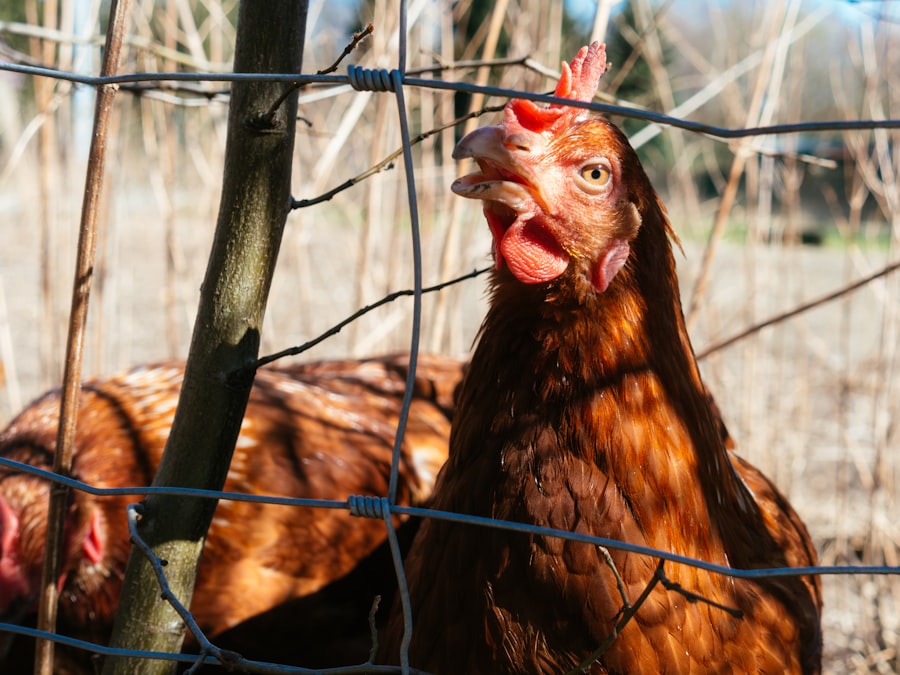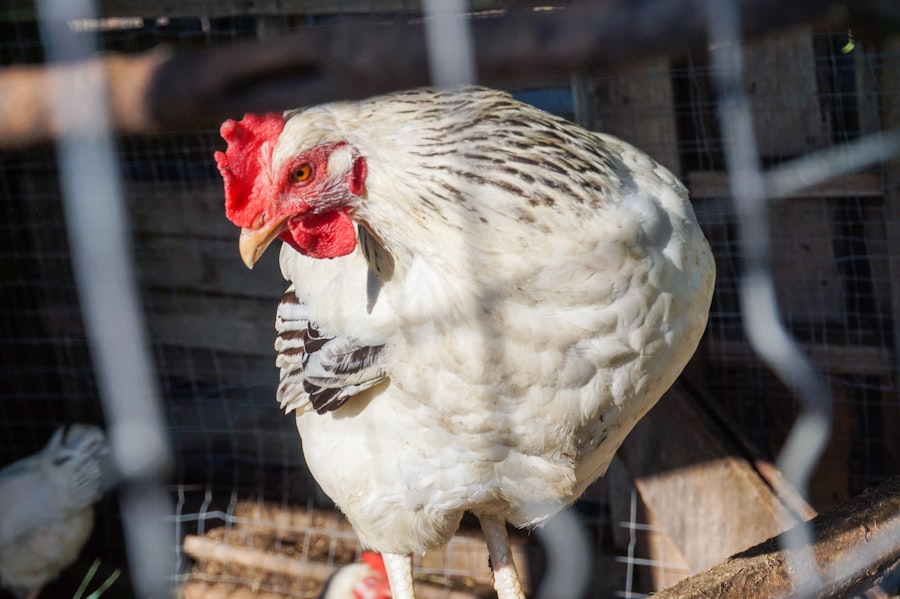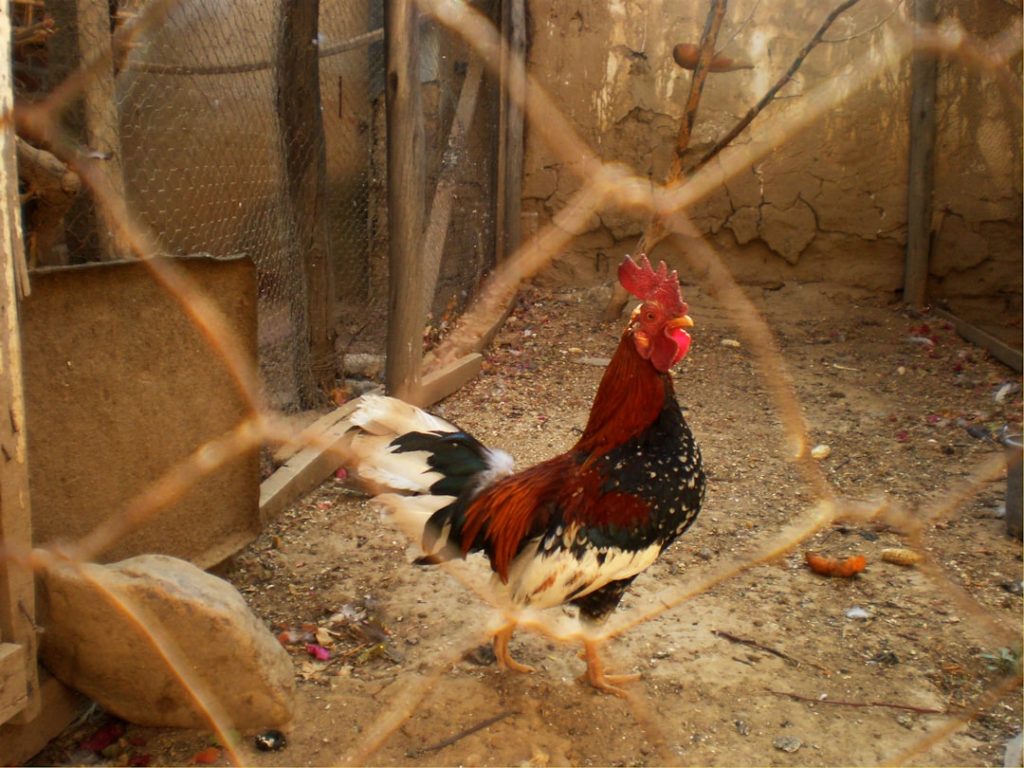Predator management is a crucial aspect of chicken husbandry. Various animals, including foxes, raccoons, and raptors, pose significant threats to domestic poultry. These predators can cause physical harm, mortality, and stress to chickens, as well as emotional distress for their caretakers.
Effective predator control involves a multifaceted approach, incorporating knowledge of predator behavior, installation of physical barriers, utilization of natural deterrents, and creation of secure areas for chickens to exercise and forage. By implementing these strategies, chicken owners can significantly reduce the risk of predation and ensure the safety and well-being of their flocks.
Table of Contents
- 1 Understanding Chicken Behavior
- 2 Creating Physical Barriers
- 3 Using Natural Deterrents
- 4 Implementing Training and Behavior Modification
- 5 Providing Alternative Areas for Chickens
- 6 Conclusion and Maintenance Tips
- 7 FAQs
- 7.1 What are some effective ways to keep chickens out of garden beds?
- 7.2 Why is it important to keep chickens out of garden beds?
- 7.3 Are there any plants that can help deter chickens from entering garden beds?
- 7.4 What are some natural deterrents that can be used to keep chickens out of garden beds?
- 7.5 How can I create alternative foraging areas for my chickens to keep them out of garden beds?
Key Takeaways
- Chickens can exhibit destructive behavior, such as pecking and scratching, which can be a problem for their owners.
- Understanding the natural behavior of chickens, such as their need to forage and explore, can help in addressing their destructive tendencies.
- Physical barriers, such as fencing and netting, can be effective in preventing chickens from accessing certain areas.
- Natural deterrents, such as citrus peels and strong-smelling herbs, can help deter chickens from specific areas.
- Training and behavior modification techniques, such as positive reinforcement and distraction, can be used to redirect destructive behavior in chickens.
Understanding Chicken Behavior
Chicken Behavior and Predator Vulnerability
Chickens are naturally skittish animals that are easily startled by sudden movements or loud noises. They are also curious creatures, often exploring their surroundings and pecking at anything that catches their eye. This combination of skittishness and curiosity can make them vulnerable to predators.
Natural Instincts and Nocturnal Predators
Chickens have a natural instinct to roost at night, making them easy targets for nocturnal predators such as raccoons and owls. By understanding these behaviors, you can better anticipate potential threats and take proactive measures to protect your flock.
Chickens have a pecking order within their flock, with dominant birds asserting their authority over subordinate ones. This social hierarchy can impact how chickens respond to threats, as dominant birds may take charge in defending the flock while subordinate ones may be more prone to panic and flee. Understanding these dynamics can help you identify which chickens may be more vulnerable to predator attacks and take steps to protect them accordingly.
Creating Physical Barriers

One of the most effective ways to protect your chickens from predators is by creating physical barriers around their coop and run. This can include installing sturdy fencing around the perimeter of the coop and run, as well as adding a secure roof to prevent aerial predators from swooping in. It’s important to use materials that are strong and durable, such as hardware cloth or welded wire, to ensure that predators cannot easily break through or dig under the barriers.
In addition to fencing, it’s also important to secure the coop itself with strong locks and latches to prevent predators from gaining access. This includes reinforcing doors and windows with predator-proof materials and regularly inspecting the coop for any signs of wear or damage that could compromise its security. By creating physical barriers, you can significantly reduce the risk of predators gaining access to your chickens and provide them with a safe and secure environment.
Using Natural Deterrents
In addition to physical barriers, natural deterrents can also be effective in keeping predators at bay. One common natural deterrent is the use of predator urine or scent markers around the perimeter of the coop and run. This can include placing predator urine or scent-soaked rags in strategic locations to create the illusion that a larger predator is present, deterring smaller predators from approaching.
Another natural deterrent is the use of motion-activated lights or sound devices that startle predators when they approach the coop or run. These devices can mimic the presence of a larger animal or human, causing predators to think twice before attempting an attack. Additionally, planting thorny bushes or shrubs around the perimeter of the coop can create a natural barrier that deters predators from getting too close.
It’s important to note that while natural deterrents can be effective, they may not work for all types of predators. It’s important to assess the specific threats in your area and tailor your deterrents accordingly to provide the best protection for your flock.
Implementing Training and Behavior Modification
Training and behavior modification can also play a key role in protecting your chickens from predators. One effective method is to train your chickens to come when called, which can be useful in bringing them back to safety if they wander too far from the coop. This can be achieved through positive reinforcement training, such as using treats or rewards to encourage the desired behavior.
Another aspect of behavior modification is to discourage chickens from roosting in areas that are vulnerable to predators. This can include providing alternative roosting spots within the coop that are more secure and less accessible to predators. By modifying their behavior in this way, you can reduce the risk of predator attacks and provide your chickens with a safer environment.
It’s also important to observe and understand the behavior of potential predator species in your area. By learning about their habits and patterns, you can take proactive measures to protect your flock, such as adjusting feeding times or keeping chickens confined during peak predator activity hours.
Providing Alternative Areas for Chickens

Secure Outdoor Enclosures and Chicken Tractors
In addition to protecting the coop and run, it’s essential to provide alternative areas for your chickens to roam safely. This can include creating secure outdoor enclosures or chicken tractors that allow your chickens to forage while still being protected from predators. These alternative areas should be equipped with the same level of security as the main coop and run, including sturdy fencing and predator-proof barriers.
Supervised Free-Ranging
Another option is to allow your chickens to free-range in a supervised manner during daylight hours when predator activity is lower. However, it’s crucial to remain vigilant and keep a close eye on your flock while they are free-ranging to ensure their safety.
Benefits of Alternative Areas
By providing alternative areas for your chickens, you can give them the opportunity to engage in natural behaviors while minimizing their exposure to potential predators. This approach can help promote the health and well-being of your flock while also reducing the risk of predator attacks.
Conclusion and Maintenance Tips
Protecting your chickens from predators requires a multi-faceted approach that includes understanding chicken behavior, creating physical barriers, using natural deterrents, implementing training and behavior modification, and providing alternative areas for your flock. By taking proactive measures and staying vigilant, you can significantly reduce the risk of predator attacks and provide your chickens with a safe and secure environment. It’s important to regularly inspect and maintain physical barriers such as fencing and coop structures to ensure that they remain strong and secure.
Additionally, staying informed about potential predator threats in your area and adjusting your protective measures accordingly is crucial for ongoing protection. By implementing these strategies and staying proactive in protecting your flock, you can create a safe and secure environment for your chickens to thrive.
If you’re looking for ways to keep chickens out of your garden beds, you may want to check out this article on chicken coop ideas for some helpful tips on creating a secure and comfortable space for your feathered friends. Creating a designated area for your chickens to roam and forage can help prevent them from wandering into your garden and causing damage to your plants.
FAQs
What are some effective ways to keep chickens out of garden beds?
Some effective ways to keep chickens out of garden beds include using physical barriers such as fences or chicken wire, using natural deterrents like citrus peels or coffee grounds, and providing alternative areas for the chickens to forage.
Why is it important to keep chickens out of garden beds?
It is important to keep chickens out of garden beds to protect the plants from being trampled, scratched, or eaten by the chickens. Additionally, chicken droppings can introduce bacteria and parasites to the garden soil.
Are there any plants that can help deter chickens from entering garden beds?
Yes, there are certain plants that can help deter chickens from entering garden beds. Some examples include marigolds, lavender, and rosemary, which have strong scents that chickens may find unpleasant.
What are some natural deterrents that can be used to keep chickens out of garden beds?
Natural deterrents that can be used to keep chickens out of garden beds include citrus peels, coffee grounds, cayenne pepper, and garlic. These items can be scattered around the garden beds to discourage chickens from entering.
How can I create alternative foraging areas for my chickens to keep them out of garden beds?
You can create alternative foraging areas for your chickens by designating a specific area of your yard for them to roam and forage. This area can be equipped with chicken-friendly plants, insects, and other natural elements to encourage the chickens to stay away from the garden beds.
Meet Walter, the feathered-friend fanatic of Florida! Nestled in the sunshine state, Walter struts through life with his feathered companions, clucking his way to happiness. With a coop that’s fancier than a five-star hotel, he’s the Don Juan of the chicken world. When he’s not teaching his hens to do the cha-cha, you’ll find him in a heated debate with his prized rooster, Sir Clucks-a-Lot. Walter’s poultry passion is no yolk; he’s the sunny-side-up guy you never knew you needed in your flock of friends!







